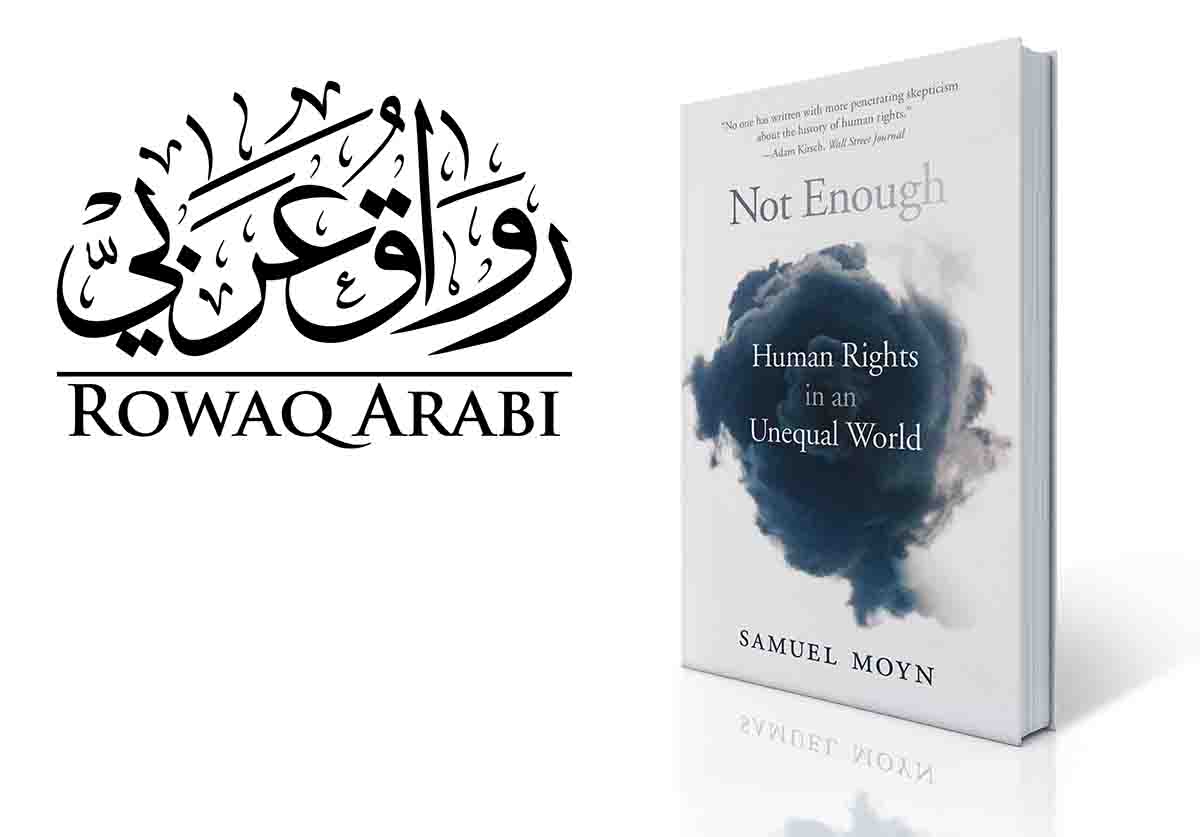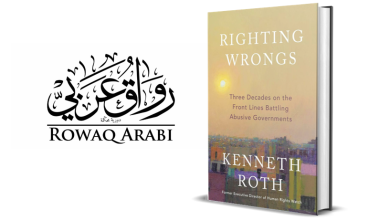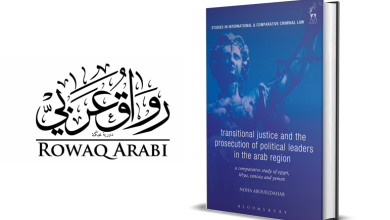Book Review – Not Enough: Human Rights in an Unequal World

Download this article as PDF
The history of human rights, with its roots in religion, philosophy and revolution, stretches back centuries. Yet, as Samuel Moyn, Professor of Jurisprudence at Yale Law School and Professor of History at Yale University, accurately observed, human rights did not rise to prominence until the late seventies, and human rights language proliferated only after 1989. Most remarkably, the breakthrough of human rights coincided with a watershed moment in the history of political economy: the establishment of neoliberalism as the world market’s guiding ideology. In his latest book, Not Enough: Human Rights in an Unequal World, Samuel Moyn explores the connection between human rights and neoliberalism, arguing that human rights are falling short of addressing the worldwide increase in wealth inequality.
Central to the book’s argument is the distinction between sufficiency and equality. Sufficiency is about a minimum floor of subsistence: the absolute necessities to lead a decent life. Equality, on the other hand, is about how individuals relate to each other. It does not concern the question whether everyone attains a threshold, but rather whether there is a ceiling.
How rich are the rich? During a brief moment in history, the welfare state committed itself to both concepts, sufficiency and equality, through the redistribution of wealth. For a proper understanding of this moment, the book’s first chapter explores the intellectual history of social justice, tracing its roots back to the Jacobin reign during the French Revolution.
The idea of social justice, as the second chapter explains, did not rely on the concept of fundamental rights. This assertion compellingly makes the reader rethink the significance of the Universal Declaration of Human Rights of 1948. Usually, this document is portrayed as the expression of an international project to avoid a repetition of the atrocities committed in the Second World War. Moyn exposes this misconception with the argument that the UDHR rather was a blueprint for the national welfare state. However, progressives did not believe that fundamental rights, which had mainly protected the individual against the state, could be turned into a vehicle for state intervention. Additionally, the UDHR failed to explicitly refer to the social equality that had already taken a central role in the policies of the welfare state. Redundant from its very inception, the UDHR would consequently remain in the margins until the breakthrough of human rights in the seventies.
The third chapter briefly focuses on the United States’ move towards social rights under the New Deal in the 1930s, and how the war economy impeded the creation of a fully-fledged welfare state. This does not mean that the European version of the welfare state was all-encompassing. Although the welfare state has been the most encompassing project to redistribute wealth, Moyn rightly points out that it also was highly exclusionary. At the national level, distributional mechanisms mainly benefited the white male working class, at the expense of women and people of colour. At the global level, redistribution was non-existent, as wealth continued to flow to the metropoles of waning empires. Hence, the fourth chapter moves to the decolonisation movement, which, in the author’s view, tried to globalise the welfare project.
Therefore, Moyn argues, it comes as no surprise that new states often prioritised material equality, opting for some form of socialism as an alternative to the capitalism so closely intertwined with colonial oppression. Here, the author seemingly bends the knee to the rhetoric that often means to repudiate fundamental freedoms. Moyn allegedly quotes anti-imperialist strongman Gamal Abdel Nasser, who considered freedom ‘as more than liberty of thought and speech and writing. It is the liberty of a full stomach, a good home, health, education, work, security in old age.’[1] This is closely reverberated by the present-day discourse of the Egyptian president, Abdel Fattah el-Sisi, who eagerly frames economic and social development as a trade-off against political rights. Only later on, the author acknowledges that prioritising social rights over political and civil rights served ‘to distract from the rise of authoritarianism.’[2]
However, this rhetoric could not divert the attention of the growing human rights movement. In fact, as the fifth chapter explains, human rights played an important role in blocking the most ambitious initiative to globalise social justice: The New International Economic Order (NIEO). Proposed in 1974 by former colonies, the NIEO meant to bridge the inequality gap between the Global North and South, or, to phrase it with a concept coined by Swedish economist Gunnar Myrdal, lift the welfare state to a ‘welfare world’. Unlike the NIEO, the burgeoning human rights movement did not envision global equality. Human rights activists diverted their energy towards the ‘naming and shaming’ of the political repression and abuses in third-world countries. As such ‘human rights were often openly advertised as a means to seek the weak point of the NIEO nations, delegitimizing their ethical claims […].’[3]
While the human rights movement mainly preoccupied itself with civil and political liberties, as Moyn aptly accounts, western development thinking and foreign human rights policies shifted towards the ‘more attainable goal’ of fulfilling basic needs. The sixth chapter explains how western moral philosophy followed suit. After John Rawls’ A Theory of Justice, which Moyn considers to be ‘the swansong of national welfare in the US’,[4] philosophers like Onora O’Neill, Charles Beitz and Henry Shue turned away from collectivist egalitarianism, paving the way for an ethical individualism that focuses on sufficiency. After his explanation of how the welfare principle was abandoned, Moyn turns to the relationship between human rights and neoliberalism in the seventh chapter, which is his main launch at human rights.
Most importantly, Moyn does not consider human rights complicit in the excesses of the current-day plutonomy. He rather argues that human rights are not the appropriate tool to tackle the mounting material inequality in today’s world. The failure of human rights to defend material equality is, in the eyes of the author, partly due to the difficult judicial enforceability of social and economic rights. Usually, national judges could only impose a standstill principle on the government, which merely creates ‘a minimum within a minimum.’ Moreover, ‘the judiciary rarely served the worst off, since reaching it generally required literacy and organization.’[5] Finally, social and economic rights only enable subsistence within national boundaries at best. Poorer states have no possibility to impose a distributional mechanism on the wealthiest states.
Thankfully, human rights’ disregard for distributional equality does not render them dispensable in the eyes of the author. Moyn rightly reminds the reader that, even though human rights failed to defend material equality, they played a vital role in securing status equality, combatting injustices like racism and discrimination. Accordingly, Moyn’s criticism of human rights is more moderate than the Marxist critique that the language of rights only serves the capitalist elite. Regardless, Moyn believes that we need a meaningful, ethical alternative that, unlike human rights, can rise up to the challenge of neoliberalism. Nevertheless, he remains vague about any possible outline for such alternative, and in the book’s concluding chapter, he only hints at how such alternative could transpire.
In his conclusion, Moyn recalls the story of King Croesus, the ancient king of Lydia who considered himself the happiest man alive because of his near-endless treasury. In addition to the king’s own hubris, only an external force could end his massive accumulation of wealth. It was the Persian armies that brought down Croesus, subjugating his lands and burning him at the stake. Whereas the book was published in 2018, anyone who reads Not Enough in 2020 may wonder whether a global pandemic could be such external force. Indeed, in times of COVID-19, ‘building back better’ has become the buzzword. Regardless, Moyn’s plea may be more urgent than ever, as a recent report from Oxfam indicates that the pandemic has only widened the inequality gap.[6]
If the author’s appeal for material equality applies to this day and age, 2020 also shows that Moyn could be aiming his criticism at the wrong target. The death of George Floyd at the hands of US police, China’s mass-incarceration of Uyghurs, Poland’s targeting of the LGBTIQ+, and the UK’s overt consideration to dismantle human rights protection, show that the consensus on status equality might be less widespread than Moyn assumes. Moreover, activists increasingly criticise corporations, banks and businesses for their complicity in human rights abuses and their detrimental impact on the climate and the lives of indigenous populations. Still, Not Enough has its merit, and it is a recommendable read for human rights professionals, law students and ethicists, for the book induces a critical reflection on human rights work, development policies and social justice.
[1] Moyn, Samuel (2018) Not Enough: Human Rights in an Unequal World (Cambridge, Harvard University Press), p. 101.
[2] Ibid. p. 112.
[3] Ibid. p. 141.
[4] Ibid. p. 147.
[5] Ibid. p. 201.
[6] Gneiting, Uwe, Nicholas Lusiani and Irit Tamir (2020) ‘Power, profits and the pandemic: From corporate extraction for the few to an economy that works for all’, Oxfam, accessed on 28 September 2020, https://www.oxfam.org/en/research/power-profits-and-pandemic.
Read this post in: العربية





